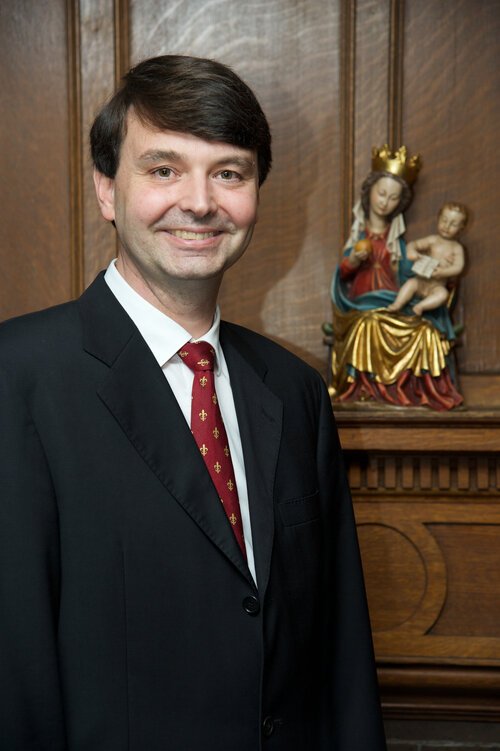Bioethics in a Catholic Country: Malta
To view a PDF of this document, click here.
Catholic countries have a great advantage when it comes to bioethics and the law. They have a tradition rooted in the natural law, with direct consequences in many areas, including abortion and euthanasia. The island nation of Malta is unique in Europe as a country ruled by a religious entity, the Order of St. John, for centuries. It continues as one of the most Catholic places on earth. Unsurprisingly, they have largely maintained pro-life laws and a pro-family outlook despite the majority of nations in Europe accepting the culture of death’s demand that abortion be permitted. Their unique situation is reflected in the Life Network, an organization in Malta that conducts many pro-life activities, including running a maternity home, receiving government support to help pay the salaries of some employees despite the fact the current ruling party in some respects is very anti-life.
Pressure on Malta has been increasing since they joined the European Union (EU) in 2004. They are considered extremely conservative because of their generally Catholic approach to bioethics within the EU. I went on trips to Malta promoting the pro-life message several times, and on my latest visit in September 2025 saw public LGBT Pride promotion sponsored specifically by the EU with rainbow flags and slogans in the capital city. Similarly, Malta has been targeted by pro-abortion organizations for years now. One of the most infamous initiatives was “Women on Waves,” an abortion campaign by Dutch Dr. Rebecca Gomperts, a radical feminist, who went to various countries with pro-life laws and offered to perform abortions on women after taking them out to international waters. She targeted Malta.
Starting in 2021, bills to legalize abortion started appearing in the Maltese parliament. In 2022, a bill was introduced amending the Criminal Code to allow medical interventions aimed at protecting the health of pregnant women who suffered from medical complications, putting their lives at risk. It was a clever way to make abortion for the life of the mother sound like the different but ethically acceptable application of the principle of double effect. In 2023, a new law authorized the “termination of pregnancy” if the mother’s life was at immediate risk and the fetus was still pre-viable. A three-doctor panel is required to review these cases before a legal abortion can take place in Malta. Groups like Amnesty International were furious at the failure of their efforts to get wider abortion legalization for health reasons.
It is interesting how abortion groups use the same deceptive tactics in different places. The case of Savita Halappanavar in 2012, for example, was used to push the legalization of abortion in Ireland. In 2022, a US woman, Andrea Prudente, took a vacation trip to Malta while 16 weeks pregnant. Her waters broke and she started miscarrying her baby. She was hospitalized for observation and testing, but soon a conflict arose. She insisted on having an abortion and the Maltese refused, since her child was still alive and her life was not at risk. Dr. Helga Consiglio, an OB/GYN in Malta and leader in the Doctors for Life association, told me the story, which she knew very well. Prudente was so far from being in a critical situation that she simply flew to Spain to have an abortion. Nonetheless, a huge media campaign was launched against the pro-life laws in Malta, and lies and propaganda were spread by abortion promoters to put pressure on Malta to change its law.
The beautiful thing about Malta is that people like Dr. Miriam Sciberras, a cofounder of the Life Network, organized a march for life that brought together 25,000 people, or 5% of the total population of Malta, who insisted that pro-life laws be maintained. The Life Network Foundation in Malta now has a telephone hotline for crisis pregnancies, a counselling service that includes abortion pill reversal for mothers and post-abortion healing compassionate support. They do extensive pro-life education programs in schools, including some of the state-run public schools!
Bishop Joseph Galea-Curmi, an auxiliary bishop of the Archdiocese of Malta since 2018, has as his episcopal motto: vitam alere caritate (We cherish life with love). Bishop Galea systematically includes an intercessory prayer for the defense of life from conception to natural death in the weekly Sunday televised Mass he celebrates on a national TV network. All three bishops in Malta spoke out vigorously against abortion and euthanasia when those proposals came up in the press and in parliament.
Malta has a small but vociferous pro-abortion doctors group, led by a pediatrician no less, that makes scientifically inaccurate statements in the press. Dr. Consiglio frequently has to counter this propaganda. Here is where The National Catholic Bioethics Center (NCBC) can be helpful. We shared our resources such as The New Charter for Health Care Workers, The Handbook on Critical Life Issues, and our Ethics & Medics newsletter. Sound bioethics is always based on accurate scientific facts. Those pushing abortion or assisted suicide and euthanasia frequently play fast and loose with the truth. They try to manipulate tragic and emotionally charged medical situations and throw out falsified statistics to bolster their positions. Malta infuriates the pro-abortion side because it has some of the lowest maternal mortality statistics in the world, number 7 in one ranking and far ahead of the USA, despite a near total ban on abortion.
The NCBC stands firmly behind the observation that truth and compassion should go together. The dignity of the human person requires ethicists and medical professionals to refuse any direct attacks on human lives. When a difficult situation arises, the “easy solutions” of the culture of death must be rejected. Instead, accompaniment, both spiritual and emotional, should be carried forward and proper informed consent and treatment provided. There is no place for harshness or killing in a faithful Catholic approach to maternal/fetal vital conflicts or end-of-life scenarios.
Joseph Meaney, PhD, KM
Joseph Meaney received his PhD in bioethics from the Catholic University of the Sacred Heart in Rome. His doctoral program was founded by the late Elio Cardinal Sgreccia and linked to the medical school and Gemelli teaching hospital. His dissertation topic was Conscience and Health Care: A Bioethical Analysis. Dr. Meaney earned his master’s in Latin American studies, focusing on health care in Guatemala, from the University of Texas at Austin. He graduated from the University of Dallas with a BA in history and a concentration in international studies. The Benedict XVI Catholic University in Trujillo, Peru, awarded Dr. Meaney an honorary visiting professorship. The University of Dallas bestowed on him an honorary doctorate in Humane Letters in 2022.


